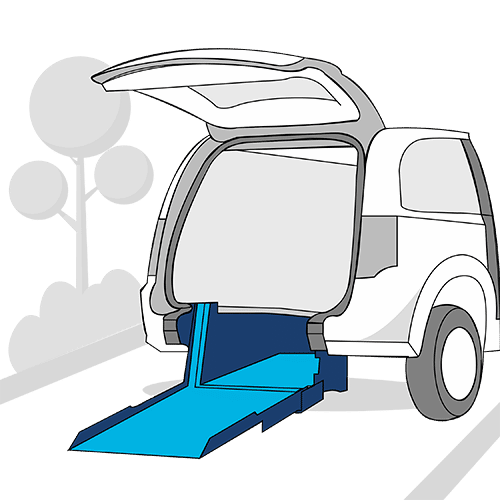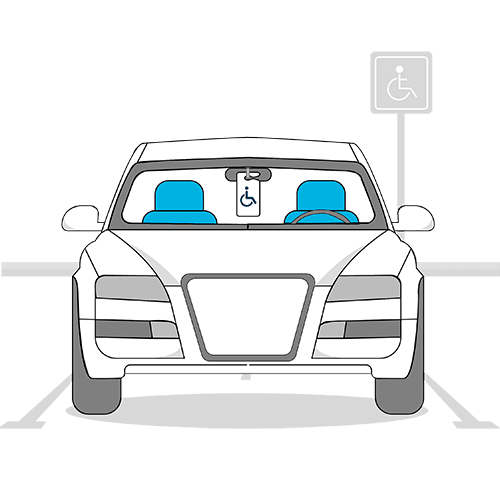We’ve all heard stories about insurance companies offering cheaper prices based on strange things like the colour of your car or marital status, but what impact does disability have on price? Read on to find out the answer – it may surprise you.
Insurance is all about risk, and it’s not uncommon for insurance companies to charge more to insure riskier drivers and riskier cars. For example, a young driver will typically pay more than middle-aged drivers because younger drivers are more likely to be involved in an accident because they are less experienced.
Similarly, it will cost more to insure classic and performance cars, as well as those fitted with expensive accessories like alloy wheels, body kits and turbo engines because they are at higher risk of theft and sometimes used in riskier driving situations.
So how should disability factor into insurance? Should it factor into it at all?
The short answer is yes, but probably not how you think.
How Does Disability Rate?
Most insurers often don’t even know if their clients have a disability. It’s not question you see on a car insurance quote form and you could argue that asking such a question is discriminatory. After all, simply having a disability doesn’t necessarily impact a person’s driving skills.
In some cases the person with the disability doesn’t always drive themselves. This is certainly the case when a child has a disability, or an elderly person relies on their family, friend or a carer to drive them.
So while a person’s age, gender and driving history will always affect their insurance premium, their disability should not.
What might surprise you is that insurance statistics show that people with disability and the people who drive them are generally safer drivers because they have fewer accidents that result in insurance claims. This means that they should receive lower insurance premiums because they are less risky to insure.
What About Disability Conversions?
Disability conversions can be complex and expensive. One of the most common conversions are vans that have been structurally modified to fit a ramp that allows a wheelchair user to access the car. These are called Wheelchair Accessible Vehicles or WAV’s and they don’t come cheap. WAV conversions can cost between $25,000 and $35,000 on top of the cost of the car itself.
Because mainstream insurance providers aren’t familiar with disability conversions, they typically price these conversions in the same way as high-end performance conversions – and as we said earlier, performance conversions usually increase insurance costs. This means people with disability conversions are often paying higher prices than they should.
This doesn’t seem fair considering that disability modifications are a necessity.
This is why it pays to shop around and consider a specialist insurance provider that has a better understanding of disability converted cars.
What’s the Right Level of Cover?
When comparing insurance products, it’s important to not only compare prices, but also policy benefits, payment limits, excesses, claims processes/timings and customer service to make sure you compare apples with apples.
If you have a disability parking permit but drive a standard car, you should look for an insurance provider that recognises and rewards your likelihood to be involved in fewer incidents.
If you have disability conversions you should make sure you understand how these will be covered by your policy so you don’t face extra out of pocket expenses if you have an accident.
It’s also important to ask how your conversions will be depreciated. Most insurers depreciate the value of disability conversions at the same rate as the car. The problem with this is that most disability conversions don’t depreciate. If anything, materials and labour get more expensive every year so if your conversion has been depreciated, there may be a big gap between your insurance payout and the cost of getting your car back on the road if you have an accident.
Take Jen from Adelaide for example. Jen had a WAV that she bought brand new in 2011 for $65,000. She insured her car with one of Australia’s largest insurance companies up until last year when she noticed the total value of her car had dropped to just $35,000.
After realising that this would only be enough to pay for a new ramp installation (but no car!) Jen decided to shop around and found Blue Badge Insurance, which allows people to cover disability conversions on a new-for-old replacement basis (terms apply). The higher level of cover gave Jen the peace of mind she needed at an affordable price, so she made the switch.
A few months later, someone rear-ended Jen’s car and her car was a total write-off. Thankfully, her Blue Badge payout was enough to cover the costs of a van and a new ramp. Had she stayed with her previous insurance provider, she would have been over $15,000 out of pocket.
So if you have a disability parking permit, it makes sense to shop around to make sure you get the right level of cover for a fair price.
You may also want to consider a disability insurance specialist like Blue Badge Insurance – it could save you thousands.
If you’re interested to find out about Blue Badge Insurance’s specialist car insurance policy for disability parking permit holders, click here to start an online quote. Alternatively, call us for an obligation free quote on 1300 304 802.







